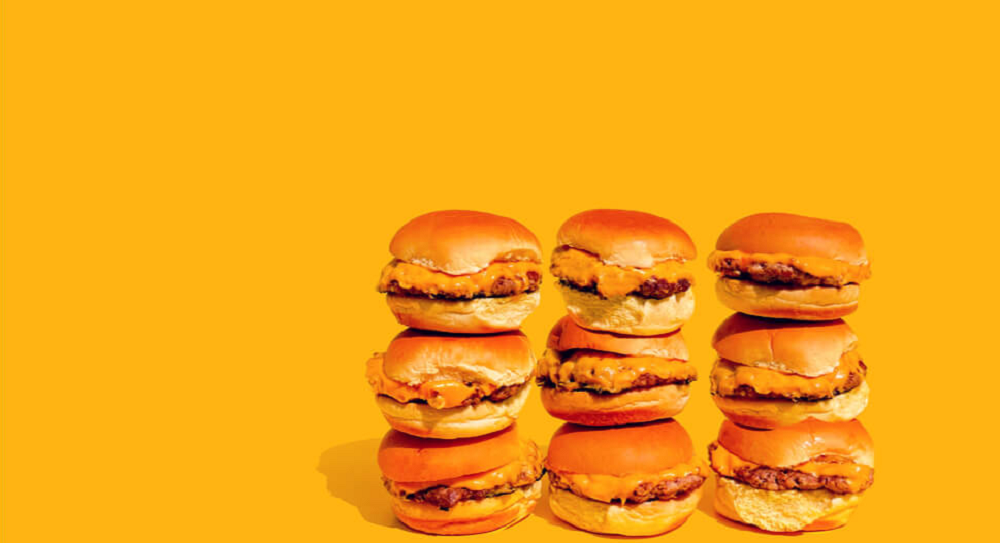With our latest location data, we analyzed foot traffic for three leading theater chains – AMC Theaters, Regal Cinemas, and Cinemark – to see how the movie theater recovery is progressing and to understand how inflation and changes in media consumption are impacting the behaviors of moviegoers. Year-over-three-year (Yo3Y) data for the first half of 2022 shows that visits to the three leading movie theater chains are steadily rising to pre-pandemic levels.
We dove into foot traffic trends for Popeyes, KFC, and Taco Bell to see how menu changes impact visits. Although the data presented here does not include all drive-thru and pick-up orders – and so does not represent the totality of the brands’ foot traffic – these metrics still show how a single popular item can significantly boost traffic across a QSR brand.
Our latest white paper dives into the spectacular return of the offline fitness industry. We looked at overall fitness visit patterns, regional variance trends, and changes in gym-goer behavior to analyze how consumers’ relationships with health clubs have evolved as a result of the pandemic. We also explored the impact inflation has on the sector to understand how fitness consumer behavior is adapting to changing economic circumstances. Below is a taste of our findings – for the full report, read the white paper here.
In the early days of the pandemic, amidst the lockdowns, population exodus, and mounting daily COVID cases, many predicted that New York City was finished. But as it turns out, it takes more than a global pandemic to destroy the city that never sleeps. Using foot traffic data, we dove into recent retail, tourism, and migration patterns for Manhattan and Brooklyn to understand how the past two years have impacted these iconic urban hubs.
As inflation spiked in the first half of 2022, grocery shoppers nationwide felt the pinch at the checkout. We conducted a regional analysis of grocery foot traffic data to examine the effect inflation is having in various markets and recapped Q2 2022 visit data for the category as a whole to offer a forecast for the coming months. Inflation remains at the forefront of retail news, with the consumer price index (CPI) jumping 9.1% in June – representing the highest level in almost 40 years.
Our last check-in with Kohl’s in January analyzed the likelihood of continued recovery for the chain’s in-store visits. As the Back-to-School season ramps up, we thought it a good time to revisit the brand’s foot traffic and look at what steps Kohl’s is taking to maintain its position as a major player in the department store space. Kohl’s potential for a comeback is fueled by the brand’s strong position in the department store space.
In this Placer Bytes, we take a look at the offline performance of two restaurant leaders, McDonald’s and Chipotle, to see how they’ve fared in Q2 2022. McDonald’s has long been an industry leader, with over $23 billion in sales in 2021. The fast food giant has the most locations of any restaurant in the country after Starbucks and Subway, even though it has been shrinking its store fleet in recent years. But despite its smaller physical footprint, the QSR leader has seen its year-over-year (YoY) and year-over-three-year (Yo3Y) visit numbers grow in recent months while outpacing foot traffic trends to the wider QSR category.
Last year’s Back-to-School season coincided with the wider post-vaccination brick-and-mortar reopening and the timing drove exceptionally high foot traffic as consumers flocked to their favorite stores to spend their savings from the previous year. This year, the retail landscape looks quite different, with shoppers looking to stretch their budgets and avoid unnecessary expenses in the face of rising inflation. Still, students need books, school supplies, and dorm decor and kids need new clothes as they grow. We dove into the data to find out which brands are particularly well positioned to benefit from this year’s Back-to-School season.
Our Quarterly Index Reports analyze the Q2 2022 performance of five key retail sectors – grocery, QSR, fitness, superstores, and dollar stores – from a location data perspective. The reports provide insights into the Q2 2022 performance of each category by diving into foot traffic patterns of each sector as a whole and evaluating visit metrics for leading brands. Below is a taste of the findings.
Prime Day usually takes place in June or July, and gives Amazon and other retailers a chance to entice shoppers with the promise of steep discounts for Back to School and other items in a period traditionally devoid of major sales events. The context for Prime Day 2022, however, was the significant inventory surplus that led many retailers to offer massive discounts before Prime Day even rolled around.
Our latest white paper dives into the biggest retail, dining, and fitness trends of the first half (H1) of 2022. The data indicates that while H1 2022 took brick-and-mortar businesses – and the economy as a whole – on a wild ride, the extent of the challenges may be overblown. And while some categories will bear more of the brunt of the current economic downturn than others, the situation is also creating opportunities for brands who can cater to customers’ current value orientation.
The coffee space outperformed the wider dining sector for much of 2021, but the Omicron surge halted the category’s foot traffic growth, and the recent economic challenges appear to be holding the category back. We dove into visits to Starbucks, Dunkin’, and Dutch Bros., as well as foot traffic to the wider coffee space, to understand how inflation and high gas prices are impacting the coffee sector’s performance.
We took a look at airport foot traffic data from the past few months to understand how the travel sector is reacting to easing pandemic restrictions, newfound inflation concerns, and rising gas prices. After two long pandemic years, people are ready to fly again. But a new challenge is throwing a wrench in the budding air travel recovery – airport staffing woes. Many airport and airline employees, including pilots and service workers, were laid off during COVID, and airports are finding that resuming normal operations will take time.
We took a look at office foot traffic trends since the start of the pandemic with a special focus on the first half of 2022 to see what visit patterns could tell us about the workplace recovery. The first half (H1) of 2022 showed strong year-over-year (YoY) growth for office foot traffic. New York City, Chicago, San Francisco, and Boston all showed sustained growth in monthly office visits compared to the equivalent months last year.
June was a difficult month for brick-and-mortar retail visits. The combination of lingering inflation and high gas prices clearly took a toll. In addition, the comparisons to a stronger period in 2021 and to the beginning of the summer shopping season in 2019 only deepen that perspective. But looking at June numbers without the proper context can create a skewed view that may miss many key takeaways.
Our recent white paper dove into the retail strategies that brands are using to rightsize effectively. We analyzed store optimization plans from leading retailers to find out how closing or re-imagining a retail location can help increase foot traffic. Rightsizing doesn’t just mean closing stores – for some retailers, like Barnes & Noble, rightsizing can mean literally resizing the store area. The retailer used to command two to three story locations, but over the past few years, as much of book-selling moved online, the chain had to close locations due to a drop in demand.
The Index analyzes data from more than 100 top-tier indoor malls, 100 open-air lifestyle centers (not including outlet malls) and 100 outlet malls across the country, in both urban and suburban areas. Placer.ai uses anonymized location information from a panel of 30 million devices and processes the data using industry-leading AI and machine learning capabilities to make estimations about overall visits to specific locations.
We looked at year-over-year (YoY) and year-over-three-year (Yo3Y) visits to BevMo!, Total Wine & More, and ABC Fine Wine & Spirits to understand where BevAlc (Beverage Alcohol) visitation patterns stand as we head towards the second half of 2022. BevAlc foot traffic broke records in 2021, as many Americans turned to alcohol to cope with the pandemic stress. Consumers visited BevMo!, Total Wine & More, and ABC Fine Wine & Spirits in droves to purchase the beers, wines, and spirits they could no longer get at bars and restaurants.
Amazon has announced that this year’s Prime Days will be held on July 12th and 13th. We dove into data from past Prime Days to understand what this year’s online retail holiday may have in store for Amazon, Target, Best Buy, and Walmart. Amazon Prime Days have been around since 2015, and the online retail holiday seems to get bigger every year.
As online and brick-and-mortar giants like Amazon, Walmart, and Target continue to expand their health and wellness offerings, the traditional pharmacy sector has had to adapt. We took a look at three of the biggest players in the market – CVS, Walgreens, and Rite Aid – to see how they are reinventing themselves in an increasingly competitive space.

























